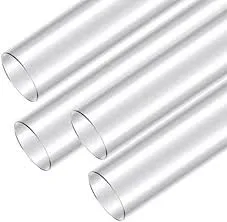Nov . 24, 2024 03:14 Back to list
pp plastic sheet
The Versatility of PP Plastic Sheets
Polypropylene (PP) plastic sheets have garnered significant attention in various industries due to their extensive versatility and functionality. Known for their strength, lightweight nature, and resistance to chemical exposure, PP plastic sheets are increasingly being utilized in numerous applications ranging from packaging to construction and beyond.
What is PP Plastic?
Polypropylene is a thermoplastic polymer that can be molded into different shapes and forms. It is produced through the polymerization of propylene monomers and is one of the most widely used plastics in the world. PP plastic sheets are favored for their clarity, durability, and resistance to impact and moisture, making them an ideal choice in applications requiring robust materials.
Characteristics of PP Plastic Sheets
1. Durability One of the most significant advantages of PP plastic sheets is their durability. They can withstand high temperatures and are resistant to many solvents, acids, and bases, making them suitable for various industrial settings.
2. Lightweight Compared to other plastic materials, polypropylene is relatively lightweight, which makes handling and transportation more manageable. This feature is especially advantageous in the packaging industry.
3. Chemical Resistance PP plastic sheets can resist degradation from exposure to various chemicals, making them ideal for use in laboratories, food processing, and other environments where exposure to harsh substances occurs.
4. Cost-Effective The production of PP plastic sheets is relatively inexpensive, which contributes to their widespread use across numerous sectors. The cost-effectiveness makes them a viable option for companies looking to reduce material expenses without compromising on quality.
pp plastic sheet

5. Versatility These sheets can be easily modified through co-extrusion and lamination processes, allowing for the incorporation of various additives that provide additional properties like UV resistance, biodegradability, or anti-static features.
Applications of PP Plastic Sheets
1. Packaging One of the most common applications of PP plastic sheets is in the packaging industry. They are used to create containers, trays, and boxes that are lightweight but strong enough to provide excellent protection for the products inside. Their ability to maintain clarity also makes them suitable for display packaging, enhancing product visibility.
2. Construction In the construction industry, PP plastic sheets are often used for insulation, vapor barriers, and protective covers. Their durability and weather resistance make them suitable for both indoor and outdoor applications, ensuring that structural elements are shielded from moisture and environmental damage.
3. Advertising and Signage The printability of PP plastic sheets allows them to be used for signage and displays. Businesses rely on them for banners, promotional signs, and point-of-sale displays due to their vibrant finish and ability to withstand various weather conditions.
4. Automotive PP plastic sheets are utilized in the automotive sector for interior trim, dashboards, and door panels. Their lightweight property contributes to fuel efficiency while maintaining the aesthetics and durability desired in vehicle manufacturing.
5. Medical Applications The medical field also benefits from the properties of PP plastic sheets. Their resistance to sterilization methods, along with their non-toxic nature, makes them ideal for packaging medical devices and surgical trays.
Conclusion
In conclusion, PP plastic sheets are a remarkable material with a wide array of applications and benefits. From packaging to construction and beyond, their unique properties such as durability, lightweight nature, and chemical resistance render them a practical choice across various industries. As the demand for sustainable and efficient materials continues to grow, PP plastic sheets are poised to remain a reliable option for manufacturers and consumers alike, paving the way for innovative uses in the future. Their versatility truly exemplifies the potential of modern materials in enhancing both industrial processes and everyday life.
-
Premium CPVC Sheet: High-Temp & Chemical Resistant Solutions
NewsAug.15,2025
-
Durable PPR Pipe for Hot & Cold Water Systems - Easy Install
NewsAug.14,2025
-
Durable HDPE Sheet | Versatile & Impact-Resistant Plastic
NewsAug.13,2025
-
Premium PVC Soft Sheets: Clear, Flexible & Durable
NewsAug.12,2025
-
Premium PVC Round Rods: Durable, Chemical Resistant, Easy to Machine
NewsAug.11,2025
-
PP U-channel: Chemical-Resistant, Lightweight & Durable
NewsAug.10,2025

